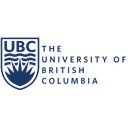Learn to develop and implement effective language preservation plans for Indigenous communities using practical frameworks.
Learn to develop and implement effective language preservation plans for Indigenous communities using practical frameworks.
This comprehensive course equips learners with theoretical knowledge and practical skills for Indigenous language planning and revitalization. Drawing from UNESCO's International Decade of Indigenous Languages resources, participants learn to develop community-centered language plans, implement preservation strategies, and assess outcomes. The course addresses policy frameworks, linguistic rights, and practical implementation strategies while emphasizing Indigenous-led approaches.
English
English
What you'll learn
Understand policies affecting Indigenous language rights and resources
Develop community-centered language preservation plans
Implement effective language revitalization programs
Create appropriate assessment frameworks for language initiatives
Navigate policy frameworks at local and international levels
Design sustainable language maintenance strategies
Skills you'll gain
This course includes:
PreRecorded video
Graded assignments, exams
Access on Mobile, Tablet, Desktop
Limited Access access
Shareable certificate
Closed caption
Get a Completion Certificate
Share your certificate with prospective employers and your professional network on LinkedIn.
Created by
Provided by

Top companies offer this course to their employees
Top companies provide this course to enhance their employees' skills, ensuring they excel in handling complex projects and drive organizational success.





There are 4 modules in this course
This course provides comprehensive training in Indigenous language planning and implementation. Students learn to develop and execute language preservation strategies that respect community needs and cultural contexts. The curriculum covers policy frameworks, planning methodologies, implementation strategies, and assessment techniques. Through case studies and practical applications, participants gain skills in creating sustainable language initiatives that support Indigenous communities' goals for language reclamation and revitalization.
What is Language Policy?
Module 1 · 7 Hours to complete
What is Language Planning?
Module 2 · 7 Hours to complete
What is Implementation?
Module 3 · 7 Hours to complete
What is Assessment?
Module 4 · 7 Hours to complete
Fee Structure
Instructors
Distinguished Indigenous Language Scholar and Educational Innovator
Candace Kaleimamoowahinekapu Galla (Kanaka Hawaiʻi & Filipino) serves as Associate Professor at the University of British Columbia, holding joint appointments in the Department of Language and Literacy Education and the Institute for Critical Indigenous Studies. Her groundbreaking work focuses on Indigenous language revitalization through digital technology and cultural practices, with particular emphasis on Hawaiian language education. Her academic journey includes roles as Program Coordinator at the American Indian Language Development Institute and faculty at Ka Haka ʻUla O Keʻelikōlani College of Hawaiian Language. At UBC, she teaches a diverse range of courses including Materials Development for Indigenous Language Learning, Technologies for Endangered Language Documentation, and Indigenous Language and Culture Education. Her research spans Indigenous language revitalization, digital technology integration, and decolonizing methodologies, with significant contributions through publications, presentations, and community engagement. Through projects like "Building Indigenous Language Teacher Proficiency" and "Living Our Indigenous Languages in a Multimedia Technology Enhanced World," she continues to create innovative pathways for Indigenous language preservation while maintaining her commitment to decolonizing academic spaces and fostering Indigenous scholarship.

1 Course
Distinguished Language Rights Scholar and Indigenous Communities Advocate
Shannon Bischoff serves as Chair of Communication Sciences & Disorders and Professor at Purdue University Fort Wayne, where he directs the Three Rivers Language Center and the Teaching English as a New Language Program. His interdisciplinary expertise spans computational linguistics, language documentation, and linguistic anthropology, supported by his PhD in Anthropology and Linguistics from the University of Arizona. His two-decade career includes significant work with Indigenous communities across the Americas and non-dominant language communities in Southeast Asia, particularly focusing on language preservation and rights. His research has garnered over $2 million in funding, including seven National Science Foundation grants and recognition from UNESCO for his contributions to Indigenous language preservation. His team won the 2018 Ken Hale Prize for their work with the Coeur d'Alene Tribal Language Programs, and his publications have been cited in major linguistic handbooks and encyclopedias. Through the Three Rivers Language Center, he continues to advocate for linguistic rights and support refugee, immigrant, and Indigenous language communities while maintaining partnerships with organizations like UNESCO for the International Decade of Indigenous Languages initiatives.
Testimonials
Testimonials and success stories are a testament to the quality of this program and its impact on your career and learning journey. Be the first to help others make an informed decision by sharing your review of the course.
Frequently asked questions
Below are some of the most commonly asked questions about this course. We aim to provide clear and concise answers to help you better understand the course content, structure, and any other relevant information. If you have any additional questions or if your question is not listed here, please don't hesitate to reach out to our support team for further assistance.




